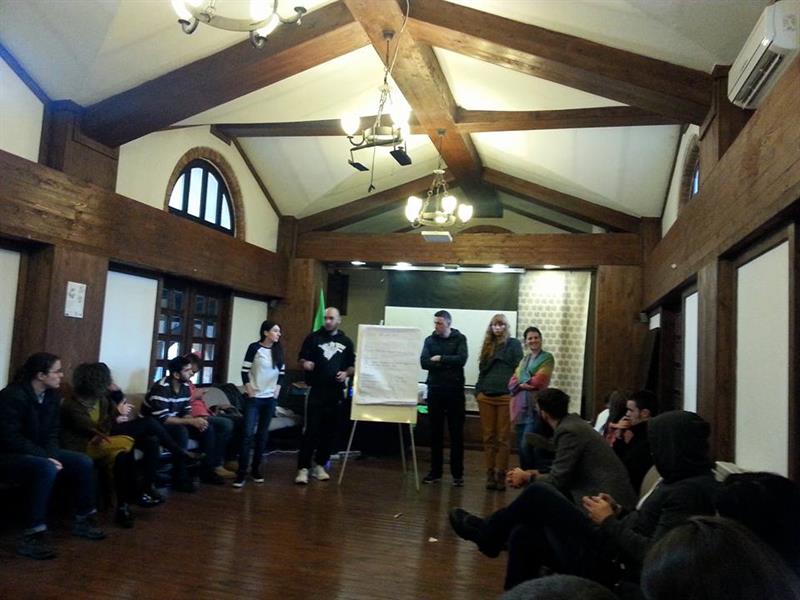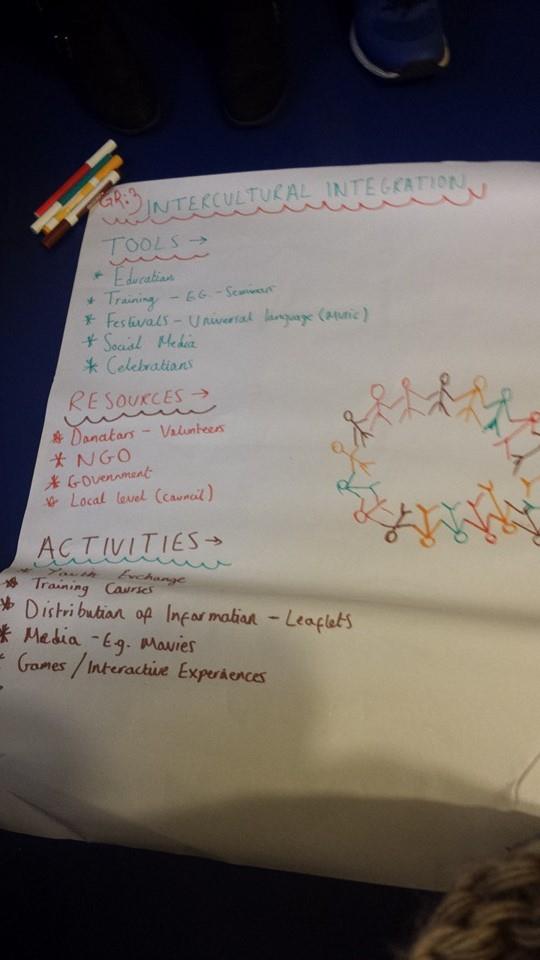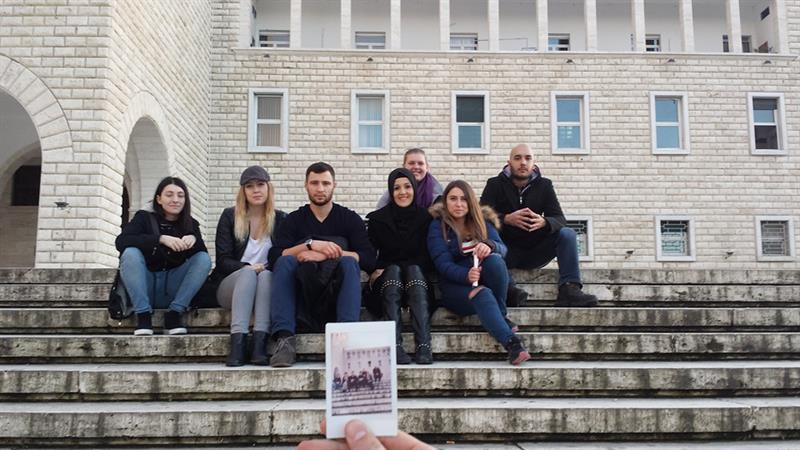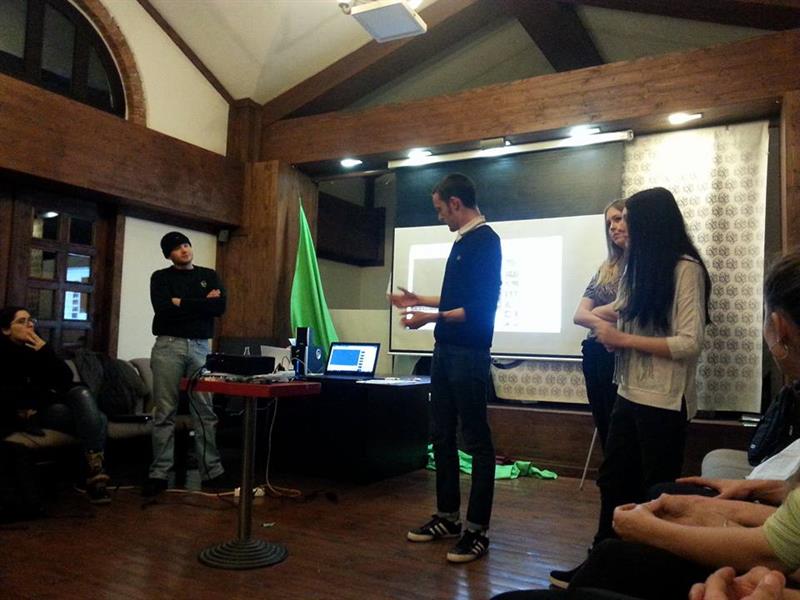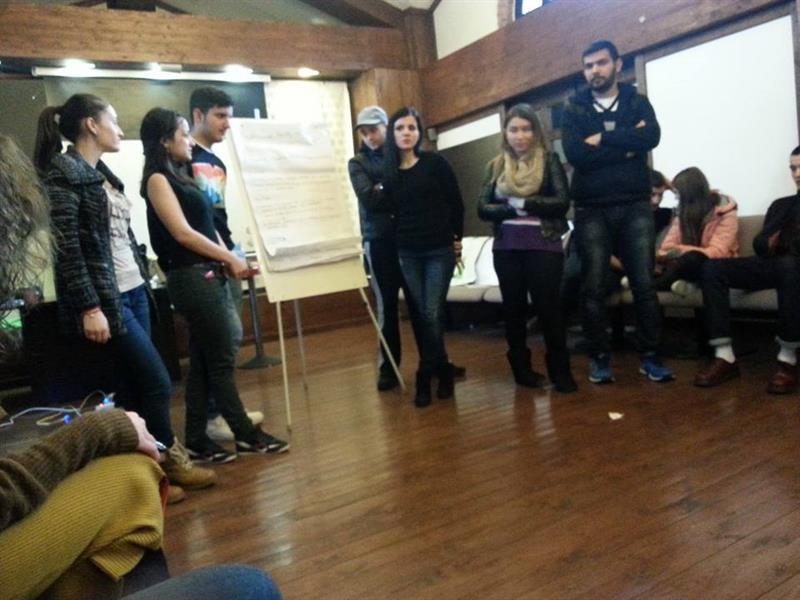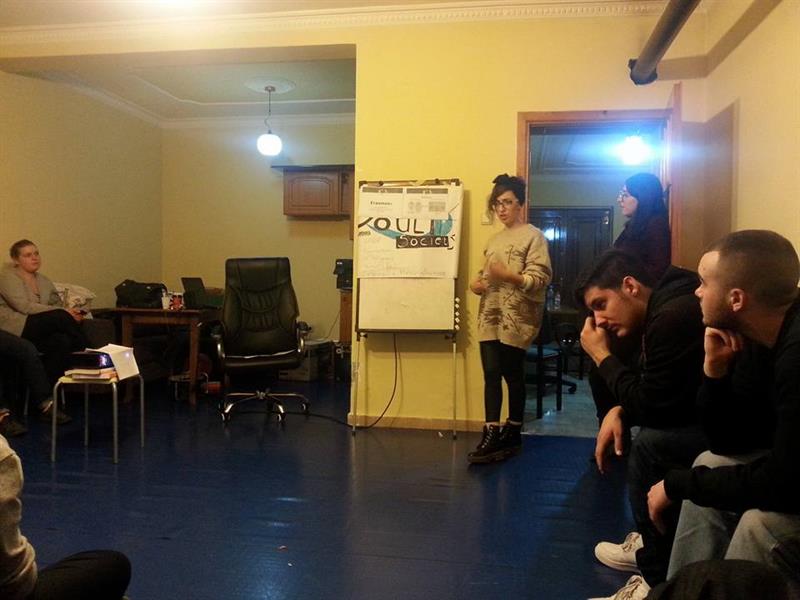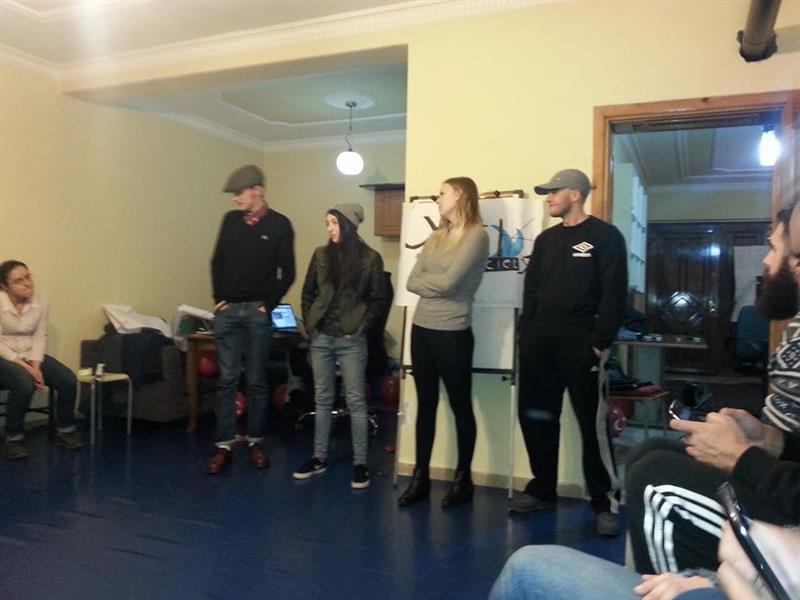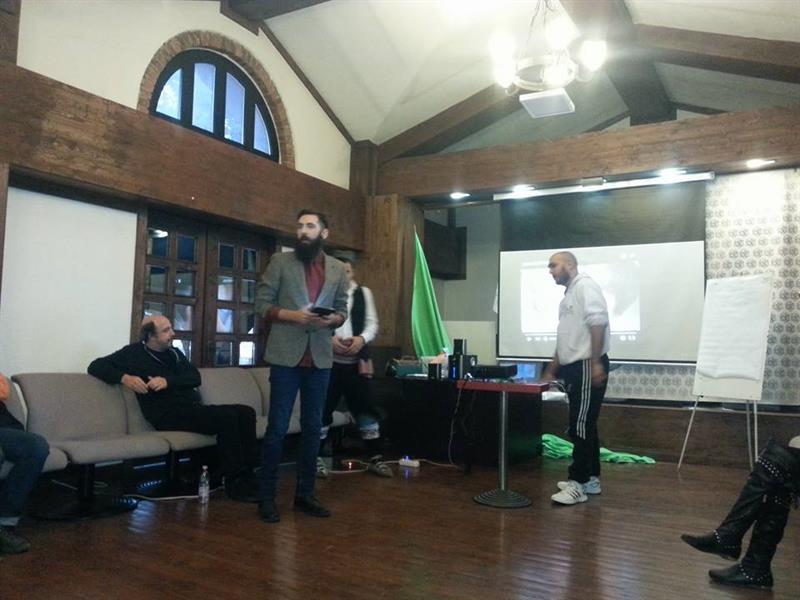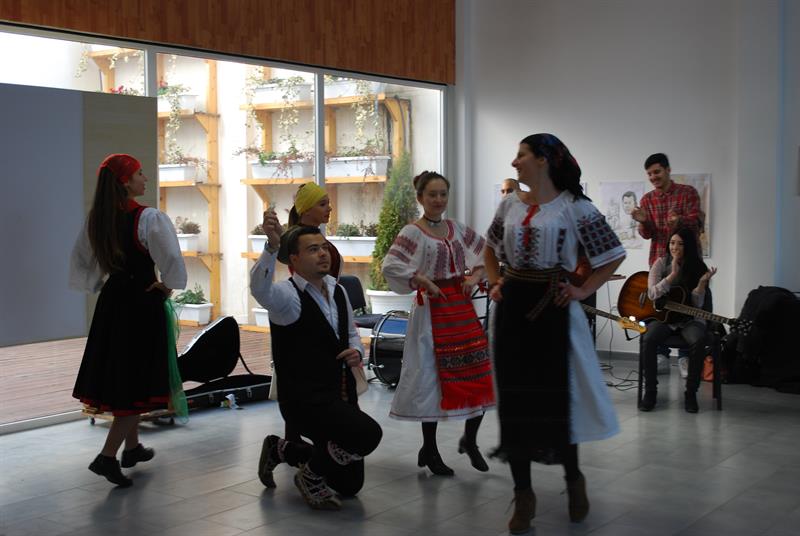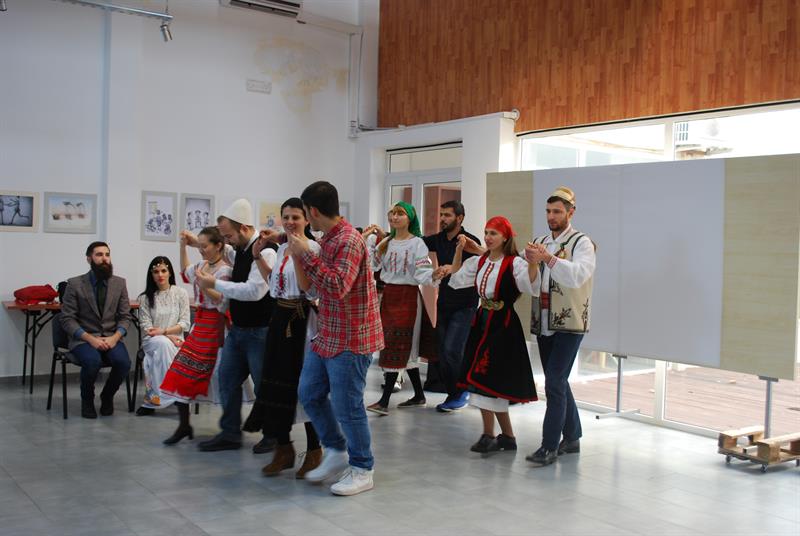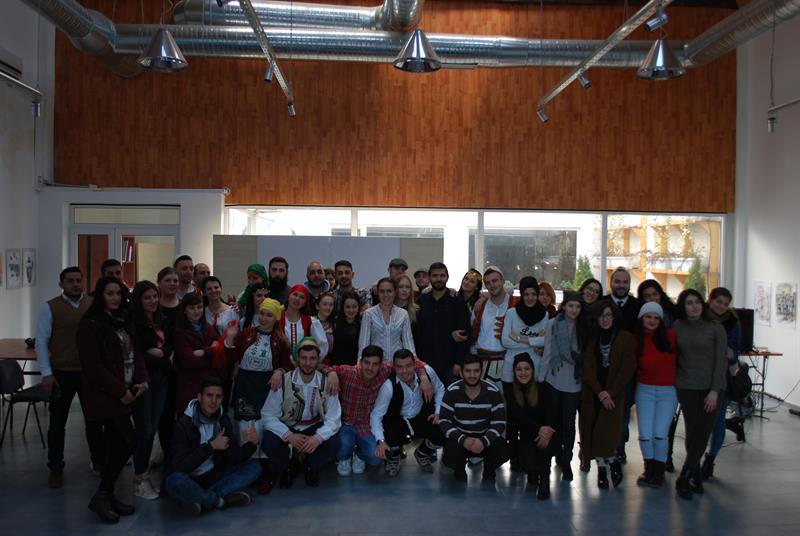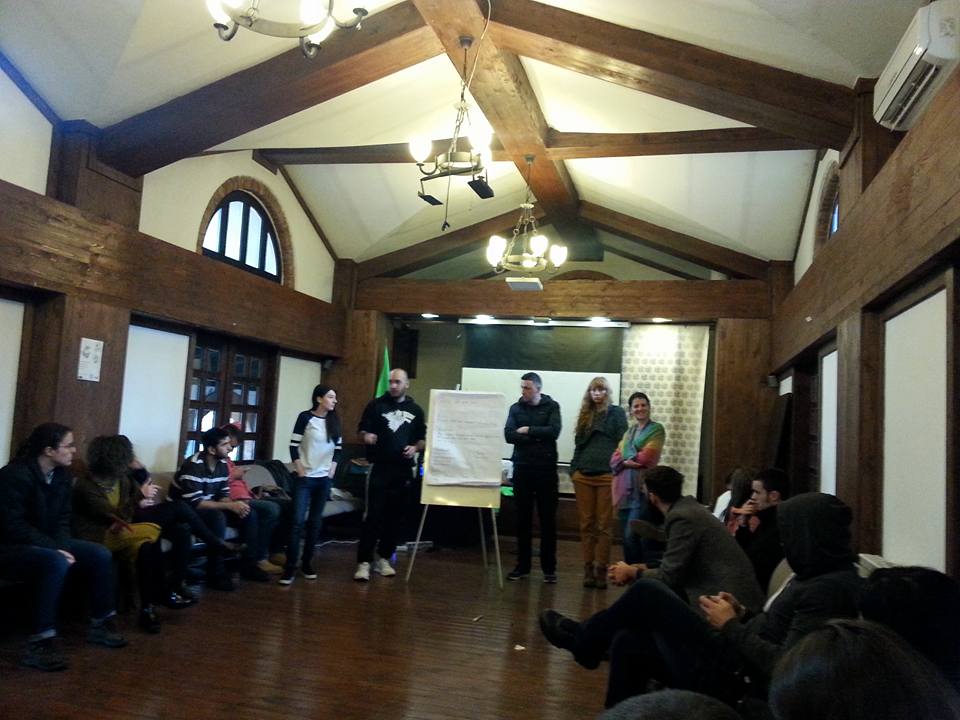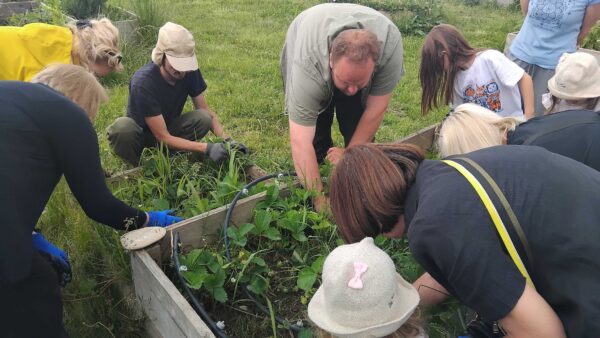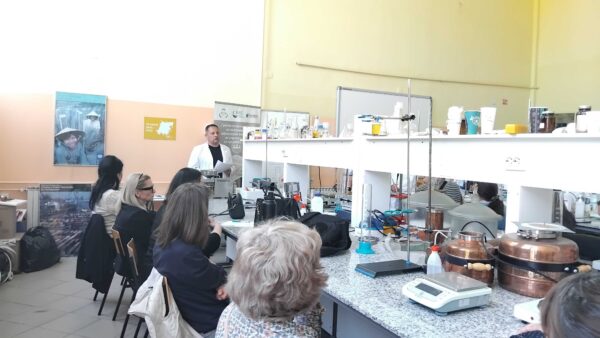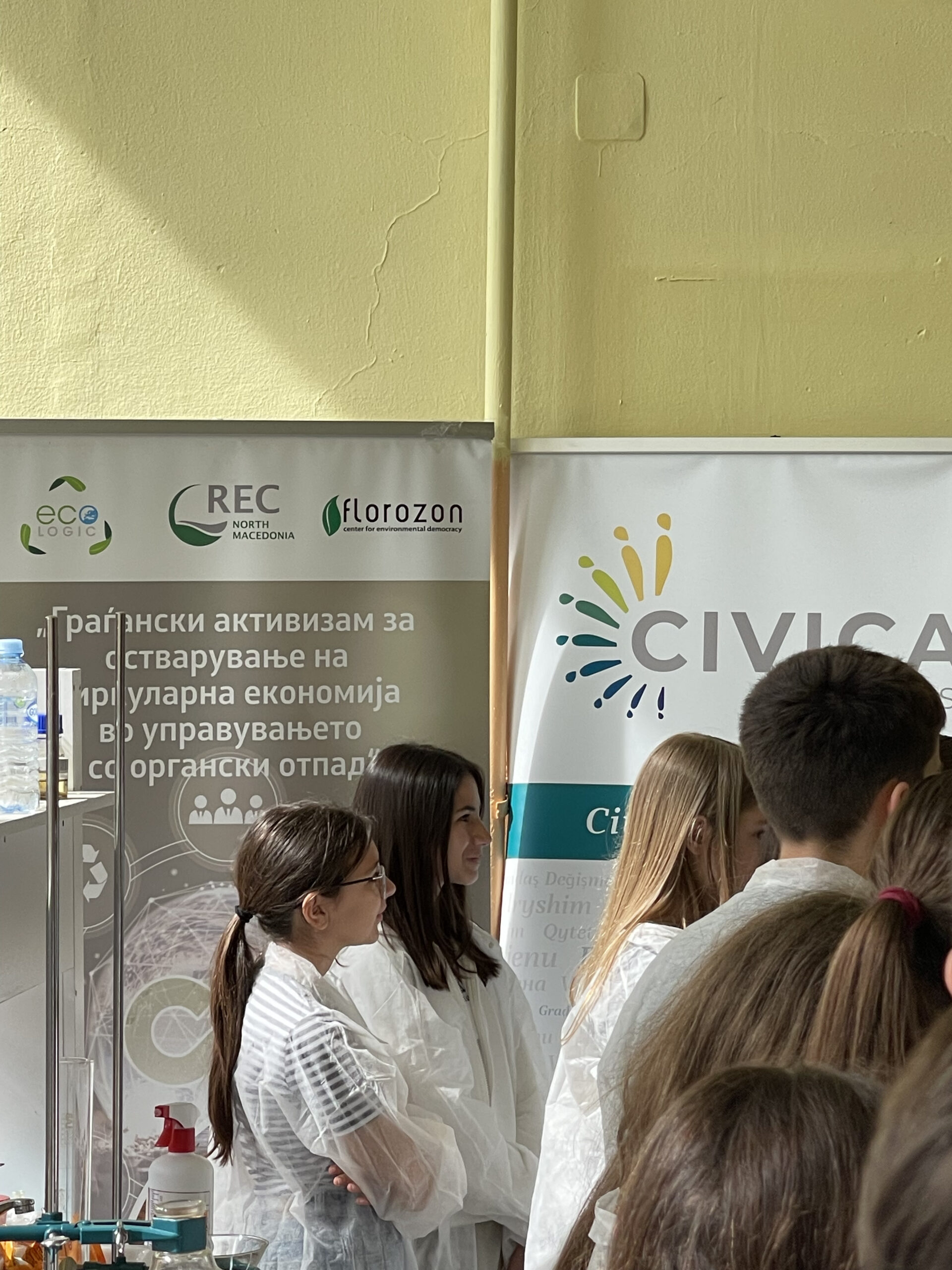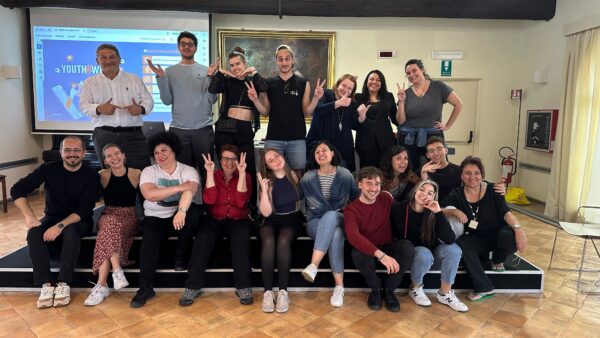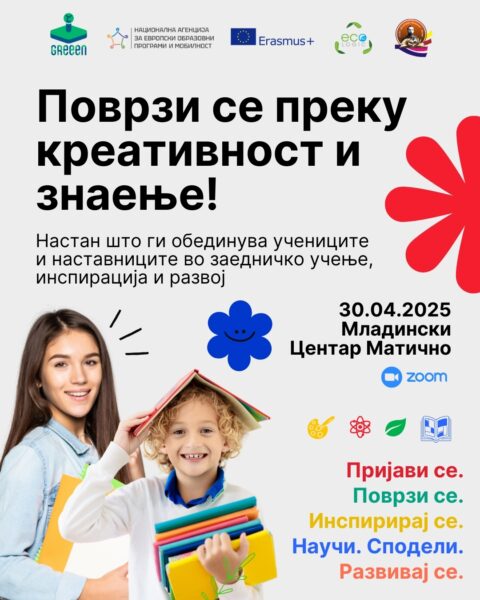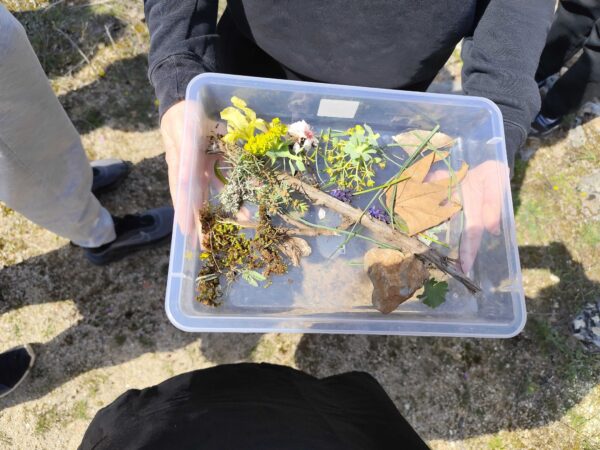The Eco Logic team was part of a training course “Intercultural dialogue through music”.
The main aim of this training course was to develop youth work competences in intercultural dialogue, notably through non-verbal communication and cultural diversity – dancing activities. The course took place in Tirana, Albania from 11 January – 19 January, 2016 and the participant were youngsters from eight different countries: Albania, Kosovo, Turkey, Macedonia, Serbia, Bulgaria, Romania and United Kingdom. Within this course variety of methods and methodologies for non – formal education were presented.
The participants were working together to understand and accept the cultural diversity and improve the intercultural learning process.
The main objectives and priorities of this project were:
- To develop youth worker competences in intercultural dialogue through the use of music in order to increase the quality of their work and strengthening the capacity of their organizations;
- Strengthen Erasmus+ Youth partnerships, including EU and South – East European countries;
- Mainstreaming intercultural dialogue in European youth projects;
- Increasing the quality of youth service provision in partner countries;
- Promoting cultural diversity through music.
Within these sessions the participants were introduced with the non – formal education and its importance. The non – formal education was defined as:
- Concrete experience
- Active experimentation
- Abstract conceptualisation
- Reflective observation
One of the sessions was dedicated to the Iceberg model, used as a tool for non – formal education in the process of intercultural learning. Through understanding this model, the youngsters could accept different cultural identities based on their characteristics such as emotions, habits, thoughts and beliefs. In other words go beyond the cultural stereotypes and look deeper in the human’s personal, socio – cultural and moral values.
This group of young people in short brainstorm sessions had an opportunity to identify the tools, resources and activities for intercultural integration and also to generate future project ideas that will improve the quality of the intercultural dialogue.
Every working session started and ended with an energizer. This type of tool is very often used for strengthening the participants’ collaboration, also increasing enthusiasm or energy level.
During the intercultural night the participants had a chance to present traditional food and drinks, history and interesting facts for their country. Each country had its own workshop where they could perform traditional dances, play traditional instruments and music and present traditional costumes.
The outcome of this training course was a video and a final performance at Tirana Youth Centre. The final performance was a mix of different cultural traditions including playing traditional instruments and performing traditional dances in traditional costumes.
On the other hand, the team building activities, for instance the Tirana treasure hunt, gave the participants an opportunity to meet Tirana from different aspect. Solving the given tasks they discovered new facts for the city, for its history, culture and beauty.
